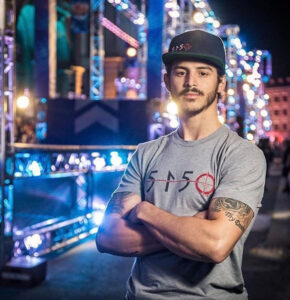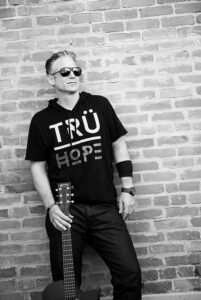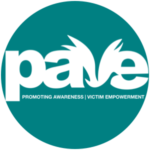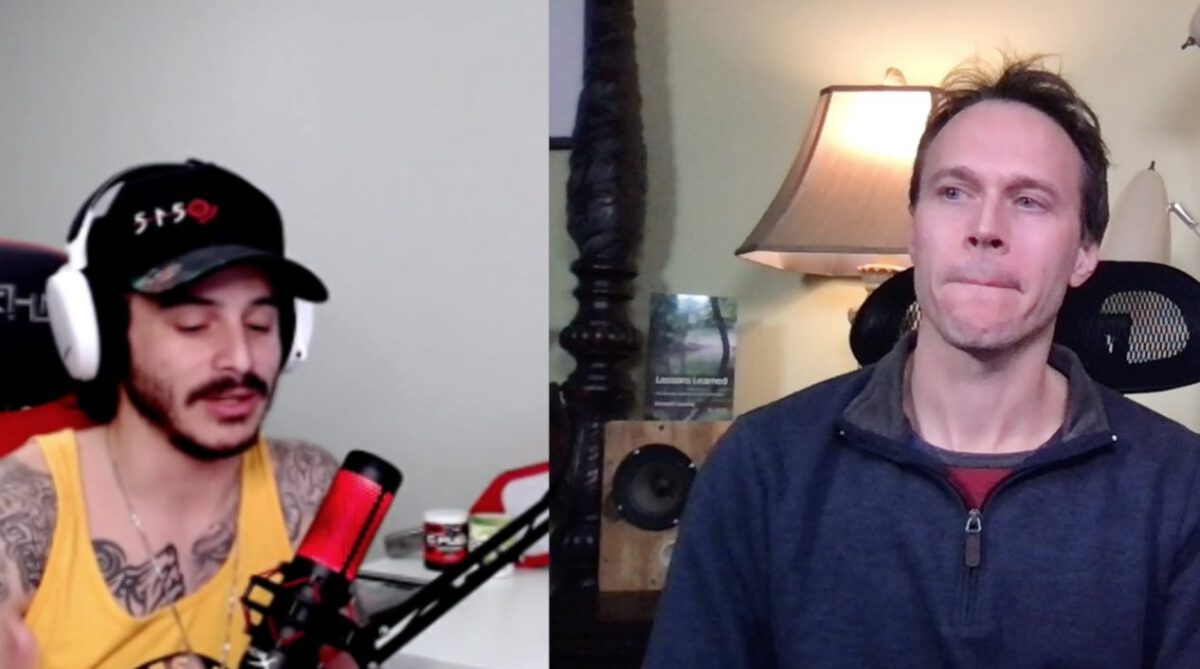Too often people are unwilling or afraid to speak out about negative experiences, especially about sex or sexual abuse. My guest in this episode is serving as a role model, shining light on an issue that needs our honest attention for us to understand and respond to it in a healthy, healing way.
Flip Rodriguez announced to the world that he is a survivor of childhood sexual abuse. It was a weight lifted from him, and now he can help others navigate trauma by talking about his own.

About Flip
Flip Rodriguez is a regular competitor on American Ninja Warrior. He also streams on his Twitch channel where he plays Fortnite and other games, or just hangs out with the Flip Fam generating positivity.
A note on technical issues
When I first published this, I had some bad crackling noises in the audio. I found a way to correct that, and today (2/26/2021) I am putting a new version of the audio up here. The YouTube video is also updated.
(Transcript)
Yep, my name is Flip Rodriguez. I am mostly known for being on American Ninja Warrior for the last ten years now.
Flip
Full disclosure: I’ve been a fan of Flip’s since the first time I saw him on American Ninja Warrior. And several years ago, he came out as a survivor of childhood sexual abuse. I was shocked and impressed when I saw this. Shocked because that’s not usually what people do on national television; and impressed because of the way that he handled it. And I’ve been particularly interested in being able to watch his life since then and how he’s moved forward from that point. So I was really excited to get the opportunity to interview him here today.
Uh, so, growing up I was sexually abused by my own father. So that took a turn for—more against my growth as an individual. So that really, like, stunted that growth. I felt like if I couldn’t trust my own father to be there for me, why would I be able to trust any other human being on this planet. Um, so it grew a lot of distrust in people, even though some people have had their best intentions for me.
And fast-forward to Ninja Warrior, JD, who is one of the producers on the show, had always been constantly telling me like, “Hey listen, I feel like there’s more to you. So at some point, we’re going to have the conversation, an interview, and we’re going to inspire the world.” And you know, five years down the road, from being on American Ninja Warrior, is when he was like, “Hey listen man, I think this might be your time, bro, this may be your moment.”
I had a lot of good people around me to support me to support me in the sense of, “Hey listen, we understand something happened. But whatever you decide to do either way, we’re still here.” You know? It wasn’t a ton of people, but it was just enough people to make me feel comfortable with whatever the outcome will be.
So, it was the day of the interview, and JD said, “Hey listen, we’re going to do this the right way, bro. We’re going to have one camera, one producer, which is myself, and one cameraman. That’s it. We’re not going to have our usual 5-6 people around. It’ll just be us. And you get to take your time, no worries.”
And I cannot tell you, it took me probably an hour before I spoke anything to the camera. I was just crying, in tears, because it’s like the words I’ve never spoken, you know?
So it was truly weightlifting after the interview. And JD was like, “Bro, we’re going to do this the right way. Thank you for sharing your story. I never would have guessed it.” And it was truly one of the biggest healing steps for me personally.
Flip
So, uh, obviously that’s a challenging topic to talk about in general. I’ve heard that some people, particularly men, have a hard time talking about these things because, sort of being out of control of your sexuality sort of conflicts with our general idea of masculinity and whatever. Did you experience anything like that?
Kenneth
Because we’re men we’re supposed to handle our own.
Flip Rodriguez
Aw hell yeah. In middle school and high school, man, I couldn’t let nobody know nothing, bro. You know, like, maybe not in today’s age, but when I was in middle school and high school, like, the thing was to be called “gay.” You know, “you’re gay.” And then like the “f” word. Not f-u-c-k but the other “f” word. That was the common disrespect toward each other. That was the common hype thing, in middle school and high school.
Because we’re men we’re supposed to handle our own, and those things don’t happen to us when your situation may not be—you may not be able to control it. Like what was I supposed to do at nine years old against my father, however old he was. I’m powerless at that point, you know?
And I’m so young, I don’t know different, I don’t know right from wrong. No one had a conversation with me about good touch/bad touch, or, you know what I mean? Lack of knowledge was very—I guess would be the most power thing. There was a lack of knowledge. They say knowledge is power, and I didn’t have any.
Flip
So at what point did you, um, did you actually realize that something wrong was going on? Was it right away, or did it take a while for that to sort of sink in?
Kenneth
No, you know, I always felt like something was wrong. But because it was—I guess I would say normal, uh, you just kind of go with it, you know what I mean?
Flip
Normal in terms of your own life, your own experience?
Kenneth
I felt the hiddenness. So that felt wrong.
Flip Rodriguez
Yeah, my own life, right. Because you don’t know—you have friends and stuff, but you don’t know what they’re doing when you’re not around. So you don’t contemplate those things. To be always the first one to be picked up on the weekend because my parents were separated, and then always being the last one being dropped off, that was just normal, you know? That’s just how it was. And I didn’t know any better.
But I felt like something was wrong because it was more of hiding. Right? Everything that was going on was hidden. It wasn’t like the family knew in the sense of what was going on at those moments. You know what I mean? So for me it was I felt the hiddenness. So that felt wrong because my parents were like “Yo, don’t hide anything from us. Tell us everything, no secrets.” So when you feel the secret you’re like, ok you’re saying one thing and then we’re doing another. So something is off. But you don’t know as a kid.
Flip
There’s this idea that I have that a significant part of the trauma that comes out of an experience like this is the way other people react to it, I guess. So like you were saying it might feel normal to you, it might seem like just part of life, to some extent, especially as you are growing up. But at some point somebody reacts to it. Maybe somebody you care up about. And it’s that reaction—that horror—you see in somebody else that there’s something terribly wrong. And that is what brings this sort of shame and this feeling that there’s something wrong with you maybe, that you should have known better or something like that. Does this make any sense to you?
Kenneth
I think on a deep level I knew that something was wrong, which is why I never say anything. Right? It’s not like I went around saying, “Hey listen”—so what did you do this weekend? “Yeah we played football and then we did this.” It’s not like I ever brought that up, ever, so I guess in a deep level I knew it was wrong without knowing it was wrong. Because I didn’t talk about it. It wasn’t a topic of discussion, ever. You know?
Yeah, so when they were like “What did you do with your dad this weekend?” It’s like, “Oh yeah, it was great, I played video games and that was it.” It was never like, “Oh yeah, this, happened. He did this to me.” So on some deep level, I must have know that it was wrong. But at the same time, it’s what I knew. I don’t know if that makes sense.
Flip
Oh, that totally makes sense. So there was a feeling that this was not something I should talk about, right from the beginning.
Kenneth
Right. Well, I mean, I was told not to talk about it.
Flip
Oh OK.
Kenneth
So when you’re told by your parents to not do something, everyone teaches you, “always respect your parents and listen to your parents because they know better.” You know? When, in this particular situation that is not the case. But people don’t teach you that. They’re always like you always respect your elders. You always gotta do this. You always gotta respect your parents because they’re your parents.
But in this situation, I bet you if I went against it, and I went really aggressive towards him, and hurt him at some point, or defended myself, no one would have an issue with it. But they don’t teach you these situations. They teach you, no, this is right. No matter what happens your parents are right.
Eh, maybe not in this case.
Flip
So you don’t talk to your father much at this point, right?
Kenneth
Oh, absolutely not. Absolutely not. At the age of 18, when I realized that no damage could be done to me from him—I’ll never forget.
He always bought me everything. Right? I always had a car, I always had the newest phones, I always had the clothes that I wanted. I always had the new gaming systems out, I had everything. Right? It’s kind of a way of buying silence. Because I literally had it all. And I’ll never forget when I realized that. And I put my foot down.
Will Smith is such a huge piece of this. Role models are so important to have, even if you don’t know them, because I didn’t know Will. But he said, “Just decide who you want to be. And once you decide, just spend every day making that happen.” Once you decide who you want to be, life is like water, it wants to go around you. It’s like it’s going to conform to you. And then I realized that, you know what, this was wrong.
Once you get to a certain age, you know right from wrong. Because at some point someone says something, that you’re like, that is wrong.
And then, you know, I was like, you know what, I decided to not be beside my abuser anymore and just go, you know. I’ll never forget. I called my mom on my bad-ass Sidekick Joker, black Sidekick Joker style, whatever it was back then. I said, “Hey listen Mom, I’m going to walk toward your house. If you want to pick me up, cool. If you don’t, I’ll walk there and I’ll see you.” And I went to his office while he was in the kitchen. This was the last time I saw him. I put my phone down. I put my car keys down. I walked out of the house and I never went back.
Flip
Do you wish that situation were different at all, or are you happy with that?
Do you wish that you were sort of able to heal things with your father, or come to some …
Kenneth
Absolutely not. Nope. The crazy part about it was—you know how I said knowledge is power, and I know I said it earlier that I was lacking knowledge? But the people around me in my family had the knowledge and they decided not to teach me.
So all of this could have been prevented if they had talked to me sooner. Actually if they had talked to me at all. Somebody should have said something. Just say, “Hey listen. This, this, this. Not saying anybody in the family specifically would do this, but if this happens you have to let me know.” There’s ways to teach people about it, where, as a youth, “Hey listen, this is good touch, this is bad touch. You know, if anybody, it I don’t care who it is, if it is your cousin, your mother, your father, whatever.” List names, and list that person in there that you’re concerned about, and that starts conversation. That stirs the pot.
But people just went, because it was uncomfortable, and people didn’t want to talk about it. They just pushed it aside. So that just let him continue doing what he’s done his whole life. Right? This is not new. People knew. It’s not like he wasn’t this monster. Everyone knew that he was a monster. Just nobody decided to do anything about it.
And that’s the raw truth.
Flip
Yeah.
Are you concerned that he’s going to harm anyone else?
Kenneth
You know, I’ve thought about that. I think, with my healing process and everything, I wasn’t in any state to think that way. Nor was I in a state to help that way. Because if I can’t help myself I can’t help anyone else, right?
I think the best thing did is put it on blast and put it out there for my family and everyone to know. Because now it’s too late. When I spoke about it the statute of limitations was over. So there’s nothing I could really do about it at the moment.
I think, uh, the only thing I can do is set my peace with it, share my story, tell the truth of everything that’s happened, and be that light where darkness is taking over.
Flip
So you said this was really, uh, I can’t remember the word you used. It was a weight lifted off you. It was a freeing experience, I think you said.
Kenneth
From talking on Ninja Warrior on the interview, it was weight-lifting.
Flip
How did that change your life? Like before and after.
Kenneth
So, the way I put it, the way most people understand it, it’s like when you’re attracted to somebody and you want to ask them out on a date. You get that nervous feeling. But it’s not nervous excited feeling. It’s nervous because you don’t want to get rejected feeling.
So for me, when I did the interview, it was uplifting. Then I realized. It was like oh snap, I just told four million people what happened to me. Right? Some of those people are people I know. This is not going to be like, “Oh you didn’t tell me.” It’s, “Oh, I found out, through the show, that this happened to you, why didn’t you ever tell me?”
So it’s like everybody is going to know up until this point. So I was like hmm, well, let’s see how people react! And I noticed this is my truth. And it’s no longer my responsibility to understand how people are going to react to it or worry how people are going to react to it.
It’s my truth. I spoke it for my right reasons: to help others. And just because someone else doesn’t understand it, or someone tries to make fun or tear me down, in a sense, that’s totally on them. I’ll try to react to it as I can, to the best of my ability. And my strict goal was to help one person. And if I accomplish anything else, it’s worth the risk of putting myself out there.
Flip
So, since you’ve had experience talking about this particular issue in your life, has that changed other aspects of your life in terms of sex? Like in terms of relationships, or communicating about your other desires or preferences? Has it made that easier?
Kenneth
You know, it’s been an interesting road. I feel like I’m not the only one. I feel like a very common uncomfortable topic is sex. Most people don’t like to talk about what they like, what they want to try, what they want to explore, in fear of resentment, in fear of being made fun of, of rejection. People are afraid of those things.
I don’t think it’s as common now as it was back then. I went through my trials and tribulations of like learning how to be comfortable with somebody, and being able to essentially explore with them. And try new things. And get out there and really be dedicated to that side of the relationship.
Because just like any other part of a relationship, sex is a part of it. So if that is malfunctioning, now you have a dysfunctional relationship. Because once that malfunctions, everything else malfunctions. Just like anything else.
You’re only as strong as your weakest link. So if your weakest link is communication, guess what? Communication is going to affect your entire relationship. Because relationships are built on communication. So if you have a lack of communication in the sexual department, then guess what? You’re going to have lack of communication somewhere else.
Because if you can’t build your weakest link to become strong, then how can you expect to build anything else to become strong?
Flip
If you can’t build your weakest link to become strong, then how can you expect to build anything else to become strong?
Flip Rodriguez
That makes a lot of sense. I like that.
So, I know this wasn’t just a one-time thing and you’re moving on to other things. And this is true for me too. I’ve been working to use some of the negative experiences from my past to do something positive with the future. To make the world a better place.
Kenneth

Yeah. Man, yeah. This past year has been, I’m sure everyone can agree, has been one heck of a year. So I’ve really been focused on being the change. To be the change. After my interview, I didn’t understand fully, to my full extent, what I was doing when I said my story and my past on American Ninja Warrior. And I started getting all these people reaching out to me to public speak about my story.
I was like, “Hell no! No way!” Listen, man, I did my part, I put it out there for 4 million. I’m done. I did it. Then it just kept coming and kept coming. People were like, “Yo, we want Flip for this in March. We want Flip for this in September.” I was like “No, you’re insane.”
I am fearful of public speaking, of being on a public stage. Like, I was fearful to to one camera and two people in front of me. Now you want me to talk to 1200 people? You’re out of your mind! No way! You’re crazy!
Public speaking is, first, a common fear, and second, no!
I didn’t grow up talking to people. I grew up in the shadow, like trying to be not seen. I want to be invisible. I don’t want people to know where I am, what I’m doing. I just want to go about my day and not let no one know anything about me. So now you want me to come up to a stage with 1200 people and tell them possibly the worst part of my life? You’re crazy! No way!
So I was talking to my best friend Sly Lewis about this, and he goes, “Dude, that might be your call. This may be it.” You should try it out or whatever.
And so many other people reached out and I never took the opportunity, until like two years later. This lady Angela Rose reached out to me. And I read her email and it just felt right. If that makes sense. She said, “We would love to have you on our panel. We’ll fly you out, give you the whole nine yards, and we’d love to talk to you about it.”
I was like alright. I said I have never done this before, really, and just understand I am not a speaker. I wanted to make that clear. She said yeah no problem, “We’ll help you,” or whatever. This was months down the line.
And then I had a buddy of mine, Jeremy Bates, who is a phenomenal, phenomenal motivational speaker. Phenomenal. One of the realest dudes I know. He said, “We have Trü Hope coming up in a few weeks. I know your story, I’d love to talk to you about it. We’ll put you on stage. It’s not going to be you by yourself. We’ll just have a conversation.”
And this was in Stockton, California. One of the baddest neighborhoods up there in North Cal. Where they’re trying to share hope. You know, like where they’re trying to share hope. Shine hope on everybody. You can come from a lot of bad places and still make it out of there. So when we went to Stockton California, and we were going through it, because we started flipping and performing and stuff.
So he was like, “Alright guys, you might know this guy. He used to wear the mask on American Ninja Warrior.” And all of a sudden now the crowd is like “oh wait, I know, oh!” And now they’re trying to figure it out.
And then they pop my video of me speaking on the screen: “Yeah, from the ages of nine to fifteen I was sexually abused.” Yada yada.
And then they were like “oh!” Now they’re figuring it out. They’re all so stoked, so excited.
And then Jeremy, after the video ends, he goes, “This is my very good friend, and we’re going to have a very uncomfortable conversation about this, so understand.” Yada yada. “So please give him the utmost respect. Introducing Flip Rodriguez.”
So I walked out and I was like sweating. Sweating sweating sweating.
Flip

Anyways the point is that he gave me the opportunity to speak in front of people, and he didn’t just throw me to the wolves. He gave me a conversation in front of people. Like we are right now, but in front of a live audience. Of I think it was 800 people. 800 kids that the school system was bringing in, on busses and stuff.
I’ll never forget it. And that’s when I realized, after, I felt so much better, because of the applause, of like sharing. When I got to meet some of these kids, and some were in tears, like, “I went through that too.”
It was motivating, like uplifting, because I could be an example for people.
So I started with Jeremy Bates, the group is called Trü Hope. And Angela Rose took me in to be on her panel for PAVE. And that just started the ball rolling for me talking about my story and putting it out there in front of live people. Being a public speaker. And I was like this is one of the scariest things of life right now!
And, you know, it was great! And so now I public speak about my story. Kind of a testament to—you’re not your situations from your past.
Trü Hope
Trü Hope provides high-energy experiences with performers and storytellers to ignite change.

PAVE
PAVE is a movement creating a world free from sexual violence and building communities to support survivors.

It’s definitely good to have a role model, somebody else that can speak about how to sort of get through this. Because it is unfortunately common.
Kenneth
Yeah. More common than not. I learned, I have done my studies on it. I was very ignorant when it came to sexual abuse culture. Because I was only concerned with myself and not letting anybody find out. Once I broadened my horizons and I started learning more about the culture. And how it happens more frequently than not, and most likely by somebody you know. It was just like … shocking. So shocking. So I gotta do my piece to help.
Flip
Yeah. I forgot to ask about the mask. You brought that up. What’s the symbolism there? I know occasionally you still put out material that references the mask.
Kenneth
Yeah, you know. There’s two ways I like to look at the mask. In middle school and high school because of what was going on with me, I always pretended to be somebody I’m not. Just so everybody would like me and no one would question any of my home life.
So I always had to be down with the boys and had to be doing whatever they were doing, even if I knew it was wrong. So it would kind of cover what was happening at home and people didn’t question it. So essentially I had to be somebody I wasn’t. And I had to, every day going to school I had to put on a mask to pretend to be somebody I wasn’t.
That’s a philosophy that’s is very common, but it’s so true. I did that for most of my childhood.
And then there’s this way I look at it is most people—when I was on American Ninja Warrior—on the mask, they loved the mask. They were like, “Bring back the mask!” Like it was the concept of Spiderman and Peter Parker. Like, everyone loves Spiderman but people don’t really appreciate Peter Parker. And people don’t realize that without Peter Parker there is no Spiderman. Spiderman is just a costume, just something he puts on. So the same thing with me, the mask was just something I put on. I make the mask what it is, not the other way around.
So when I realized that, I took it off. Like, “No.” I gotta be me. If you want me, you’re going to have to take me for me, and not me for the mask. And it’s one of those things. Just be yourself. It’s OK to be who you are. And understand not everybody is going to like you. Whether you have the mask on or not. Whether you’re Spiderman or not. Like people love Batman over Spiderman.
Like, not everyone is going to like you. Once people understand that people, just, aren’t always going to like you, now you’re ahead in life. Because no matter who you are, what mask you decide to throw on, somebody is going to have something negative toward you anyways. So you’re better off being yourself, so that the people around you that really like you like you for who you really are, not for who you are pretending to be.
Flip
I gotta be me. If you want me, you’re going to have to take me for me, not for the mask.
Flip Rodriguez
Fantastic. That’s pretty much all the questions I’ve got. Is there anything that I forgot? Anything else you’d like to mention, that you’re working on? Or anything else important?
Kenneth
I think self-development is very important. It’s very important, to be honest. I think we get caught up in life way too easy, with everything that’s happening. It’s so easy to get caught up in the negativity of the world and the negativity of our own life. And I challenge people to change your perspective and see what they’ve gained from it rather than what they are losing from it.
Kind of just always seeing that silver lining in the dark clouds.
Flip
Great. Thank you again.
Kenneth
Of course.
Flip


2 replies on “Episode 11: Speaking Out and Shining Light”
I like what you’re doing. Keep up the good work. I can see why you’re a fan of Flip Rodriguez. He’s a good talker, but he also has good things to say.
Check out this video that Flip created! https://youtu.be/NxVe3-ZKywU